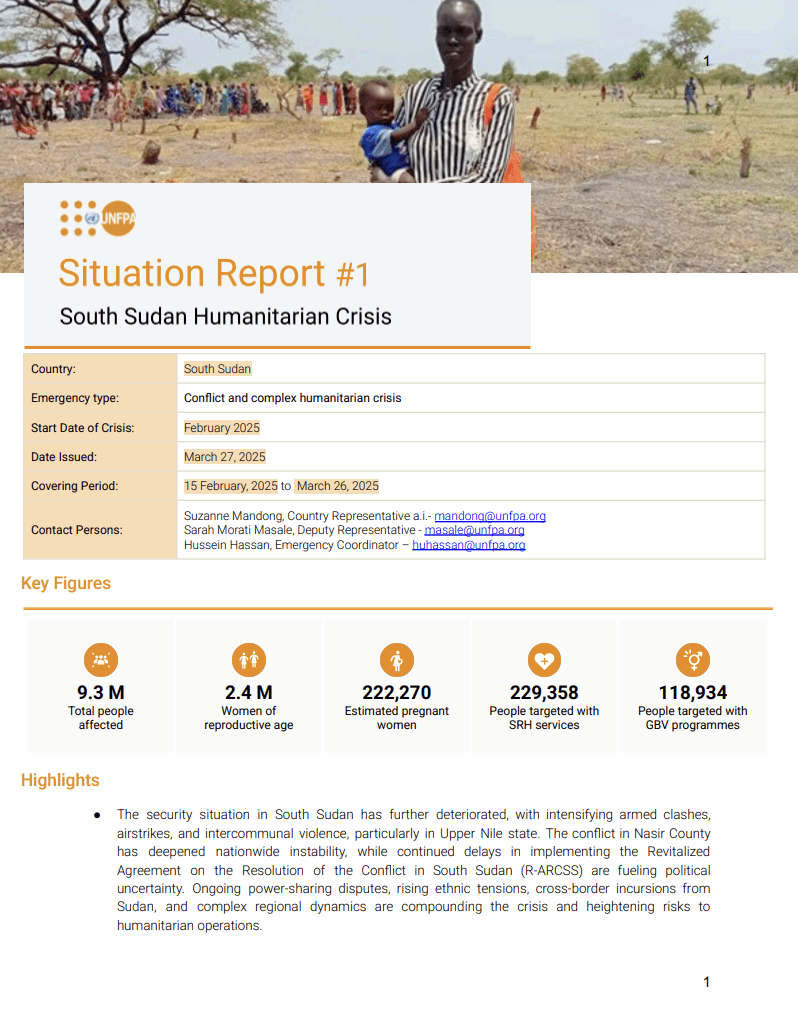
Resources
South Sudan Situation Report #1 - February 2025
Resource date: Mar 2025
Publisher: UNFPA South Sudan

Resources
Resource date: Mar 2025
Publisher: UNFPA South Sudan
The humanitarian crisis in South Sudan continues to escalate amid intensifying conflict, ongoing displacement, and a worsening economic outlook. Armed clashes, airstrikes, and intercommunal violence have deepened nationwide instability, with delays in implementing the Revitalized Peace Agreement further fueling political uncertainty. Over two-thirds of the population now require humanitarian assistance, and women and girls are among the most affected, facing significant barriers to accessing life-saving sexual and reproductive health (SRH) services and protection from gender-based violence (GBV). The healthcare system is overwhelmed, the cost-of-living crisis is deepening, and a growing refugee influx from Sudan is placing even greater pressure on already strained resources.
Despite these challenges, UNFPA remains fully operational through its offices in Juba, Bentiu, and Wau, delivering critical SRH and GBV services to those most in need. In Nasir, UNFPA has mobilized reproductive health kits and dignity kits for displaced women and girls, while Women and Girls’ Friendly Spaces provide GBV case management, psychosocial support, and safe access to services. Mobile medical teams are reaching remote communities, and health facilities supported by UNFPA continue to offer the Minimum Initial Service Package (MISP), including care for rape survivors and maternal health services. Referral pathways and coordination mechanisms are being strengthened to ensure a more effective and survivor-centered response.
However, a severe funding shortfall threatens to undermine these life-saving efforts. As of now, UNFPA South Sudan has received only 14 per cent of its required US$8.8 million, with critical gaps in funding for GBV response, SRH programming, and the refugee response. The suspension of U.S. aid and broader donor reductions have compounded vulnerabilities, forcing cuts to essential services and increasing the risks for women and girls in an already fragile context. Urgent funding is needed to sustain operations and protect the health, rights, and dignity of affected populations.